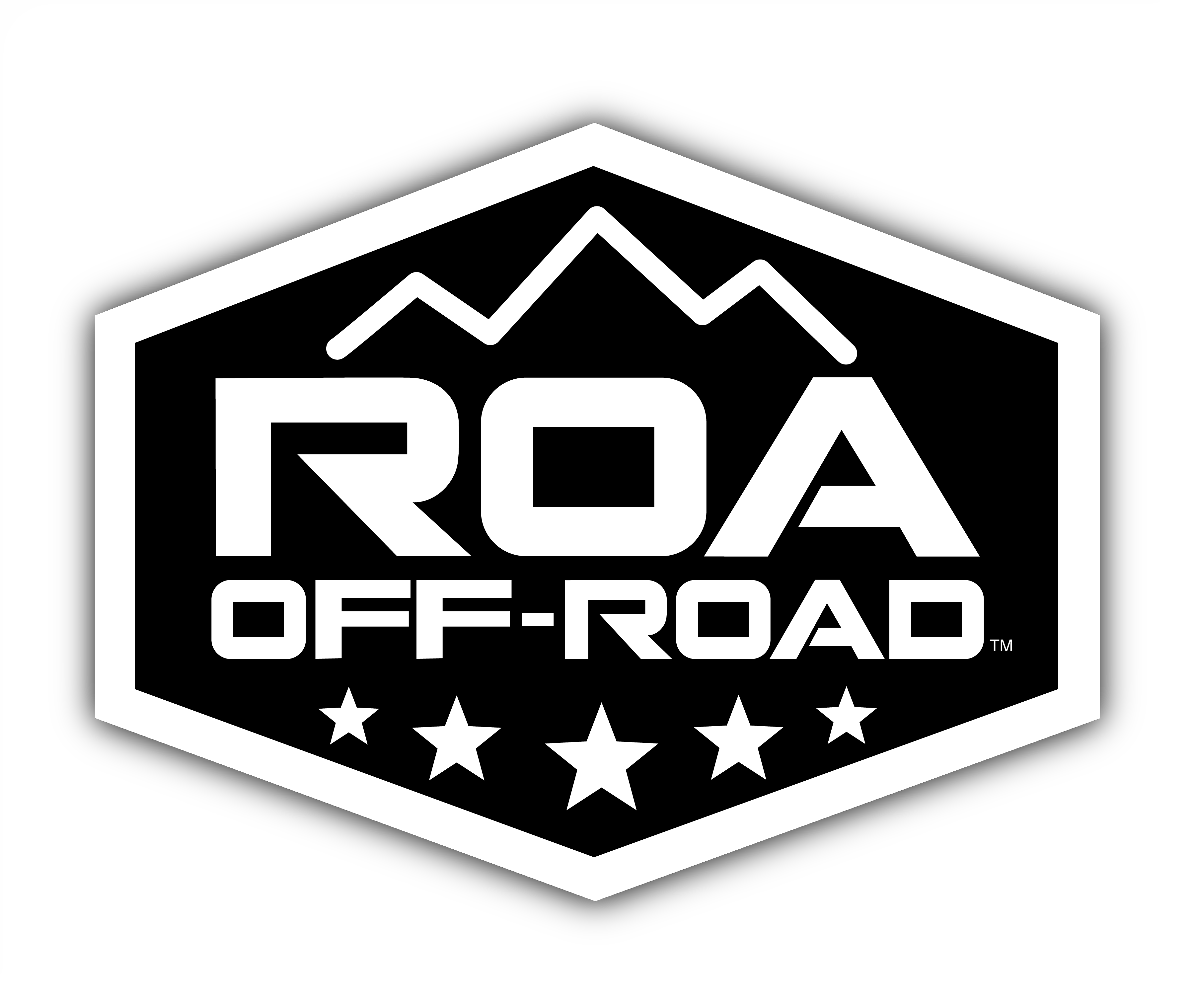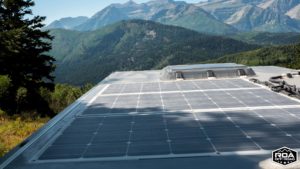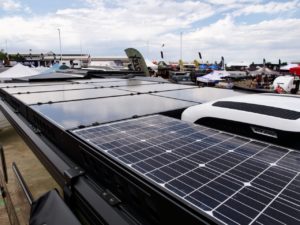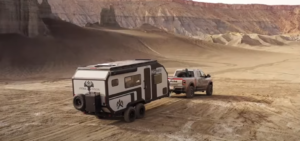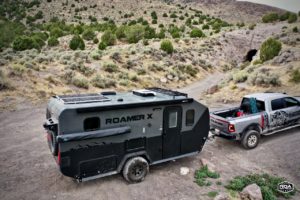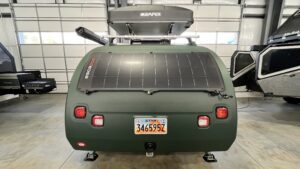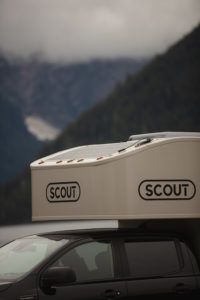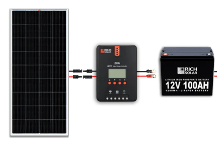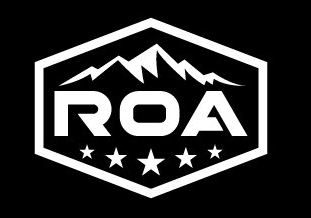I want to address a few common misconceptions about solar panels. It’s very important to understand not only how they work, but also what to expect from solar so that you are fully armed with the knowledge that you need to make excellent choices.
For an end-to-end guide on RV solar systems, read this Complete Solar Guide by Go Power.
To see a few trailers with undeniably powerful solar systems, check out the ROAMER 1 and X195 by Imperial Outdoors with 1240 Watts of Solar! Or the Palomino Pause line that can each be optioned up to 1200 Watts of solar split between rooftop panels and auxillary solar blankets (my favorite is the Pause XC16.4)!
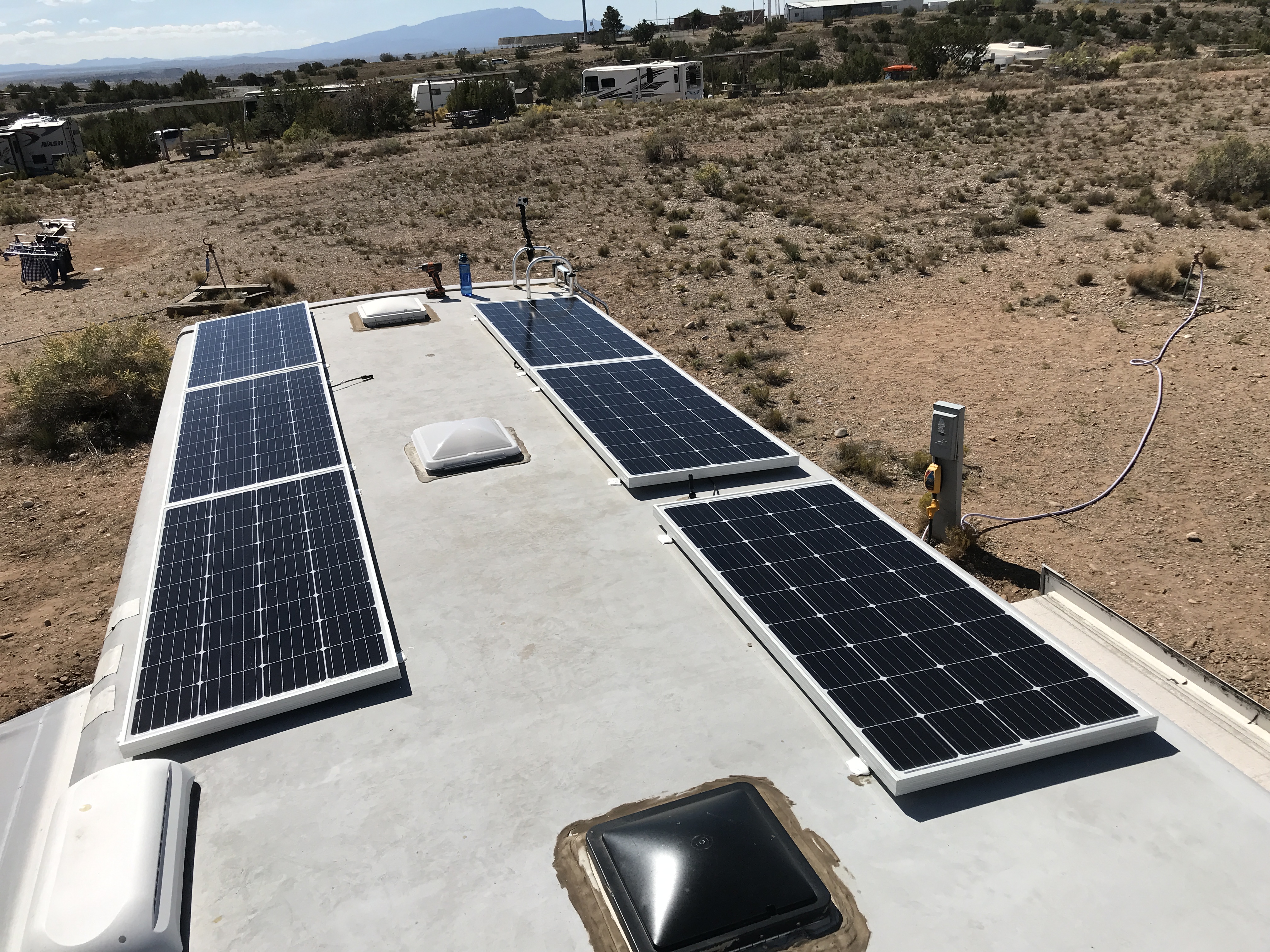
Common misconceptions:
- Certain components “Run off of solar”
- If I have solar panels, then my batteries will always be close to full
- Solar panels perform equal to their rating
Certain Components “Run off of solar”
This is technically innacurate. In the most basic sense, the only thing that your solar panels do is charge your batteries. If your trailer ran off of solar power, then nothing would work about an hour before sunset. Although some loads (electrical components) pull away power before the solar energy charges your batteries, it is most helpful to think of your solar panels as only there to charge your batteries. This is important is because it gives you a more accurate view of your solar system as a whole (especially from a troubleshooting point of view). It underscores the fact that the batteries themselves are the real power source in the trailer, ensuring a consistent and reliable energy supply beyond the limitations of solar energy generation during the day.
Will Solar Panels Keep my Battery Bank Full?
![]()
The notion that having solar panels will ensure your batteries always remain close to full is a common misconception. While it is possible to achieve this if you have an ample amount of solar power, the reality for most RV owners is quite different. In most cases, the stock solar panels that come with your RV are designed to either slow the rate at which you deplete your batteries during heavy usage and provide a modest charge during periods of lower power consumption. That is to say that most solar systems simply allow you to stay off-grid for longer periods of time.
If your goal is to actively maintain a consistently high battery level, you will likely need to explore additional solutions. These might include installing extra solar panels on the roof, investing in portable solar panels, practicing power conservation strategies, or a combination of these approaches. In essence, while solar panels are an extremely valuable addition to your RV’s energy system, it’s important to manage your expectations and consider these additional measures if you aim to maintain a consistently high battery charge level, particularly during extended trips or heavy power usage scenarios.
To learn more about the different battery options available, read our article on some of our favorite Lithium Battery Options!
Solar panels perform equal to their rating
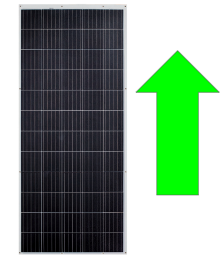 One common misconception in the RV industry is the belief that solar panels will consistently deliver their rated output, but in reality, this is rarely the case. If you purchase a RV with 600W on the roof, you would reasonably expect to see 600W coming in from the solar panels! Unfortunately, the practical performance of solar panels can be quite different from their nominal ratings, and it’s crucial to understand why this occurs.
One common misconception in the RV industry is the belief that solar panels will consistently deliver their rated output, but in reality, this is rarely the case. If you purchase a RV with 600W on the roof, you would reasonably expect to see 600W coming in from the solar panels! Unfortunately, the practical performance of solar panels can be quite different from their nominal ratings, and it’s crucial to understand why this occurs.
Under ideal conditions, which include factors like bright sunlight, optimal angles, and no shading, you might achieve a solar panel’s full rated output. In this case, the 100-Watt panel could indeed generate 100 Watts of power. However, perfect conditions are rare in the real world. Variations in sunlight intensity, cloud cover, temperature, shading, and even the angle the sun hits the panels can impact a solar panel’s actual performance.
In practice, it’s more realistic to expect a solar panel to deliver around 75% to 80% of its rated output, which means that a 100-Watt panel may generate 75 to 80 Watts on a typical day. In less than ideal conditions, this output can drop even further. Some lower-quality panels might perform significantly below their ratings, producing as little as 50% or less of the stated wattage.
Get more information from one of our Sales Coaches!
Embark on your off-grid journey with confidence! Reach out to one of our experienced sales coaches to explore the solar setups on our diverse range of off-grid trailers. Our coaches each have personal camping experience in each unit and truly understand their capabilities and limitations. At ROA Off-Road, we even offer the flexibility to enhance solar power in select units from our inventory. Take the first step toward true Off-Road, Off-Grid adventures—connect with a sales coach today!
